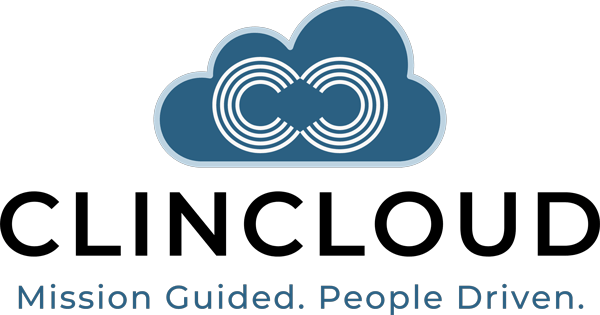Transforming Alzheimer’s Care with Breakthrough Research

The results of the Bio-Hermes study appear in Alzheimer’s & Dementia showing how new Alzheimer’s detecting blood tests perform across a broad range of races and ethnicities for the first time.
Washington D.C., Feb. 28, 2024- The Global Alzheimer’s Platform Foundation®, (GAP) is releasing the first results from the Bio-Hermes-001 Study. This study in over 1000 community-based participants from throughout the US compared the results of blood and digital biomarkers with brain amyloid PET scans or cerebrospinal fluid assays. The study revealed a strong correlation between several blood tests, particularly p-tau 217, with the presence of amyloid plaques in the brain, a diagnostic hallmark of Alzheimer’s disease (AD). This relationship was demonstrated across the entire study population including the 24% percent of Bio-Hermes participants from African American, Latino and other traditionally underrepresented communities, an unprecedented level of diversity. These findings will enhance the field’s ability to provide a more economical, timely, and accurate diagnosis of Alzheimer’s disease and speed enrollment into clinical trials.
“We expect the Bio-Hermes data will make a substantial contribution to how the field characterizes and diagnoses the pathologies underpinning Alzheimer’s and related dementias. We designed this study to simplify and accelerate this complicated and time-consuming diagnostic process. GAP is proud that we succeeded in ensuring that the participants in this study reflected the diverse underrepresented populations afflicted with dementia. And, with the assistance of our partners, we have assembled one of the largest collections of the leading digital and fluid biomarkers that are poised to accelerate more rigorous and accurate diagnosis of this heinous disease for everyone.” said GAP President, John Dwyer. “I would like to thank our partners and my fellow co-authors who made this a reality; we expect this paper to be the first of many that will use the Bio-Hermes data to shed light on the clinical opportunities and challenges emerging for all people with Alzheimer’s and related dementias.”
Currently, diagnosis of Alzheimer’s disease requires expensive scans or invasive spinal taps that are not accessible to all. With the recent approval of disease-modifying Alzheimer’s treatments, there is a growing need to simplify and accelerate an accurate diagnosis. In an effort to address the need to improve the diagnostic process, GAP convened a unique collaboration of leading biopharma, digital technology, nonprofit partners, and seventeen clinical research sites from the GAP network (GAP-Net) around the United States to conduct BioHermes.
Dr. Richard Mohs observed that “This paper moves the field ahead in simplifying the diagnosis of Alzheimer’s disease. The results show that blood tests are very good for identifying persons with amyloid plaques in brain. The blood tests worked for people with or without symptoms of disease and for persons of all racial and ethnic backgrounds. The field still struggles to enroll members of underrepresented minorities in clinical trials, but these results show that with sufficient outreach and recruitment efforts, blood tests can be used to identify appropriate study participants.”
To ensure that the data was representative of all impacted by Alzheimer’s, the study prioritized the inclusion of traditionally underrepresented populations as African Americans are twice as likely and Hispanic populations 1.5 times as likely to develop Alzheimer’s and related dementias compared to older White Americans, and research has not yet identified the cause. The researchers drew blood-based biomarker data from more than 1,000 people who were cognitively normal, living with Mild Cognitive Impairment or living with mild Alzheimer’s disease in the community. Of these volunteers, nearly 25% were of diverse backgrounds.
Coauthors of the study include Richard C. Mohs, Douglas Beauregard, John Dwyer, Jennifer Gaudioso, Jason Bork, Tamiko MaGee-Rodgers, Mickeal N. Key, Diana R. Kerwin, Lynn Hughes, Cyndy B. Cordell, and The Bio-Hermes Collaborative Group.
The Bio-Hermes study collaboration including the following partners: AbbVie, AITIA, Alzheimer’s Drug Discovery Foundation, Aural Analytics, Biogen, C2N Diagnostics, Cognivue, Emtherapro, Gates Ventures, Eli Lilly, Linus Health, Merck, Pentara, Quanterix, RetiSpec, Roche Diagnostics, Somalogic, and the University of Gothenburg.
To read the paper in Alzheimer’s & Dementia: The Journal of the Alzheimer’s Association, visit https://doi.org/10.1002/alz.13722
About the Bio-Hermes study:
In 18 months, GAP and its network of clinical research sites throughout the U.S. (GAP-Net) enrolled more than 1,000 volunteers in Bio-Hermes, the first-ever comparison study of bloodbased biomarkers and digital Alzheimer’s test technologies. Bio-Hermes compared the performance of dozens of blood tests, digital cognitive tests, retinal exams, and speech analysis with traditional methods of measuring cognition and PET images. The Bio-Hermes data set is expected to inform future clinical practice and clinical trial designs just in time to assist with the surge expected due to the recently approved disease modifying therapies for treating Alzheimer’s disease.
About the Global Alzheimer’s Platform (GAP) Foundation:
The nonprofit Global Alzheimer’s Platform Foundation was founded to speed the delivery of Alzheimer’s treatments with a commitment to promoting diversity in clinical research, as well as lowering the cost and duration of clinical trials to ensure that no one is left behind. As part of its mission, GAP supports more than 100 clinical research sites worldwide through study start-up and recruitment activities, promoting diversity in research studies, and giving attention to the citizen scientists who make research possible.
